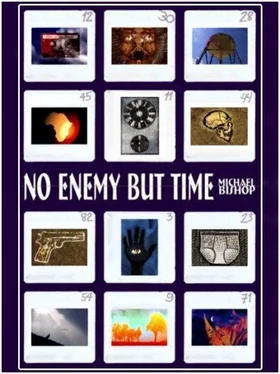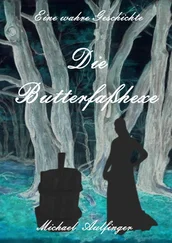Past other gussied-up windows and shop fronts, Joshua moved aimlessly through the mall. He had money in his pockets and a full month of leave before the Air Force sent him PCS (Permanent Change of Station) to East Africa. Before he left Eglin, he had presents to buy—for Big Gene Curtiss, Cosette Tru and her father at the Mekong Restaurant, and Woody Kaprow and a few of the other personnel working on the White Sphinx Project. None of them expected gifts, of course, but they were the only family he had these days and he wanted to do a little something for them.
As for Jacqueline, well, she was still in school in Washington, D.C., newly engaged to a friend and colleague of her brother Dzu’s in the State Department. She had eased herself out of Joshua’s mind as painlessly as a pickpocket lifts a wallet, in part because he had come to agree with her objections to his suit, in part because the last year and a half had revealed to him the mission foreordained for him at birth.
Jacqueline, for her part, appeared to have given up her hope of being canonized a second Our Lady of the Slums in favor of marriage and a civil-service career. Maybe these last goals were not, finally, incompatible with the first….
Almost against his will, Joshua thought of the family he had abandoned. It had been nearly seven years since he had seen his mother, Jeannette Monegal, and even longer than that since he had talked to Anna, his sister.
Adoptive mother, he mentally corrected himself. Foster sister.
But the qualifiers did not sanitize the guilt that suddenly came seeping up through him like a tide of untreated sewage. Anna he had always loved. His mother he had repudiated because she had betrayed him for the sake of a spurious tribute consisting, in fact, of a sizable advance for a book that he had kept her from publishing. After all this time, that betrayal, coupled with her treatment of Hugo, still rankled, still made him see red.
Et tu, brute.
Dante had consigned those treacherous to their own kin to the first round of the ninth, and final, circle of hell. These contemptible folks were imprisoned up to their necks in a vast lake of ice. Why feel guilty, then, about simply removing oneself from a betrayer’s sphere of influence? In comparison to Dante’s vindictiveness, Joshua was the saint that Jackie Tru had always wanted to be….
“Jesus, runt, watch where you’re going!”
Startled, Joshua rebounded from a clean-cut young serviceman who, but for the passage of four years, could have been the identical twin of the would-be Ranger in whose company Joshua had first encountered Jackie. The serviceman angrily shook his head and escorted his companion—a blue-jeaned ingénue with a simulated lip lesion—around Joshua, who mumbled an apology and backed away. More than likely he would be going overseas soon, this strapping GI. Everyone seemed to be going overseas.
The United States had more foreign outposts than the Roman legions.
Whether by chance or unacknowledged design, Joshua edged along the wall of plate glass behind him into a bookstore.
This Christmas the most prominently displayed paperbacks in the open storefront were a series of photo-novels devoted to the exploits of Count Stanislaw Stodt, a vampire in the employ of the CIA. A boxed set of five of these adventures was being touted as this year’s most popular stocking stuffer.
Joshua sidled past these displays to the hardcover tables, where management had laid out its inventory of serious fiction: hauntings, space operas, espionage thrillers, movie tie-ins, political biographies, and the complete works of Wilkie Collins, now enjoying a renascence in updated abridgments by Stephen King.
“Can I help you?”
Glancing up, Joshua beheld a slender young man with watery blue eyes and the mustache of a Central American revolutionary. The standard response to this standard query, Joshua knew, was “No, thank you, I’m just looking,” but Joshua invariably employed another—to engage, if only briefly, the clerk’s professional expertise and to dispel the impression that he was merely one more itinerant airman killing time. To wit:
“Do you have Jeannette R. Monegal’s I Couldn’t Put It Down, and I Was Sorry When It Ended ?”
The young man laughed. “Boy, that’s an old one. I’m afraid it’s out of print, even in paper.”
Now, of course, the clerk was supposed to apologize and wander off, leaving Joshua free to browse as he liked.
Instead the clerk said, “She’s written a new book, though. Maybe you’d like to take a look at it. Our copies came in just last week.”
“A new book?”
“Yes. I forget the title. Right over here.”
Joshua’s heart began to hammer his chest the way a fetus sometimes pummels its mother’s stomach. But he followed the young man to a shelf from which he withdrew a thick book in a glossy dark-green jacket.
Frightened, Joshua could feel the warmth draining from his hands, almost as if his fingers were spigots.
He closed his eyes.
“ Eden in His Dreams.”
“I beg your pardon,” the clerk said.
“That’s the title— Eden in His Dreams .”
“No, sir. Not by this author. Here, why don’t you thumb through it? It’s not selling all that well yet, but we expect it to.”
Joshua blurted, “But this is a novel.”
“Yeah. Her first foray into fiction. Publishers Weekly liked it, for whatever that’s worth. Give it a gander.”
The clerk left Joshua alone with the book, which, as hefty as a Hebraic tablet, he clutched in trembling hands.
It was entitled The Outcast . The cover showed a tatterdemalion child crouching in the shadow thrown by an immense barred door. Yes indeed. A novel.
Joshua let the book fall open and began to read. His mother’s narrative style seemed to be a cross between perfervid Mary Shelley and early Joyce Carol Oates. He tried to pick up at least a strand of the story line from this perusal, but so intense was his relief that the book was not Eden in His Dreams , he could think of little else. Gratitude welled up, and another fetid hint of guilt.
Jeannette had spared him. In fact, she had spared him for nearly seven years. That, insofar as he understood the law, marked the statute of limitations for a great many criminal offenses. If old movies and numerous detective novels did not err, a person who had not been heard from in seven years could be declared legally dead…. Maybe it was time he began to forgive his mother, demonstrated to her by word and deed the fact of his continuing existence. In less than three weeks he would be descending the ramp of a commercial airliner at Marakoi International Airport in Zarakal. He would not return to the States until the end of the decade, assuming, of course, that he did not perish in the iffy ghost-past to which White Sphinx would eventually post him.
Joshua carried the book forward to the cashier’s island and placed it on the counter. A dark young woman in a red velour jumpsuit turned the book around, studied the jacket painting, and then keyed the book’s price into the cash computer: $21.95.
“You like Jeannette Monegal’s stuff, huh?”
“I don’t know. I’ve never read a novel by her before.” He put three ten-dollar bills on the counter and waited for his change.
“You’re some gambler, then. You wait long enough and you could probably pick this up on a discount table for less than the paperback. Four and a quarter or so.”
“With me it’s now or never. I’ve never been able to delay the gratification of my impulses.”
“I know a bunch o’ fellas like you.” The cashier raised her eyebrows, slid The Outcast into a brown paper sack, and counted out his change.
Читать дальше



![Ally Carter - [Gallagher Girls 01] I'd Tell You I Love You But Then I'd Have to Kill You](/books/262179/ally-carter-gallagher-girls-01-i-d-tell-you-i-lo-thumb.webp)








